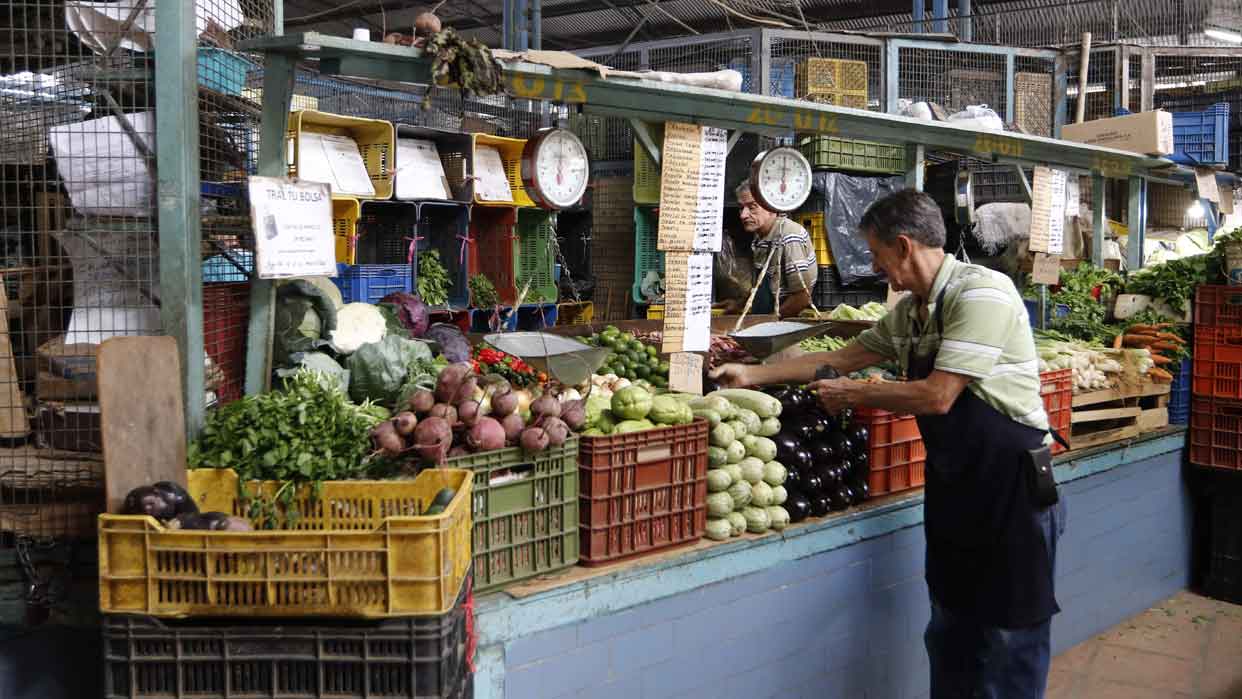Caracas.- Food security is a process that is subject to risks and stress and, like any process, it has threats, strengths and elements that are in interaction.
The statement corresponds to the specialist in food security, Edison Arciniega, who is executive director of Citizenship in Action, in an exclusive interview for EL UNIVERSAL warned that there is currently a major global crisis that threatens food security.
In this sense, he pointed out that one of the elements of this global crisis is climate change, which, specifically, has generated two major droughts in two areas of very high production for the world in the American continent, a drought on the Pacific coast of North America and a drought in the Great Paraná River Basin in South America, which has reduced the number of cattle herds, since about 8% of the herds have been lost.
“This situation translates into a drop in milk production in the world of around 7% of the global availability of milk, in addition to a drop of about 7% in soybean production, which is the main source of vegetable protein. of the world, that is going to impact both livestock production and the production of chickens, pigs and others,” said Arciniega.
He stressed that this first element of the crisis, climate change, also affects cereals and oilseeds, which is why we see that there has been an increase in the prices of meat, milk and soy at the international level.
The impact of the war
Arciniega indicated that another element is the fertilization crisis, “we have a fertilization problem, the two principles we use are Urea that provides nitrogen and phosphorus or phosphate.” This crisis stems from two specific elements, on the one hand, Russia’s invasion of Ukraine and the fact that these two countries together may at times account for a third of the world’s fertilizer imports. The impact of the war is translating into a global increase that is already 70% in the prices of fertilizers that use urea and phosphorus.
On the other hand, there is the impact that is given by the increase in costs. Since they reduce fertilization and in turn growth and production are reduced.
He added that the fuel crisis is another shocking element, we are a country dependent on fuel imports, we need to bring the components for diesel, for gasoline, because our refineries are in a sorry state.
We have no fuel, the average international price of a liter of diesel is one dollar and 36 cents, even at 0.50, diesel in Venezuela is the cheapest in Latin America and the fourth cheapest in the world.
The expert on food security highlighted a fourth element, which is the grain crisis, whose first component is the effect of climate change, but we must add the fact that imports from Russia and Ukraine have stopped flowing as a result of the conflict. We can have up to 20% of wheat off the market.
Also about 8% of corn that has not been flowing, is the crisis of cereals and oilseeds, because Ukraine in particular and Russia are large producers of sunflower and canola that are sources of fat, there is also a reduction in 15% of global exports.
The fifth element is the container crisis that has its origin in China, there are probably thousands of ships stopped off the Chinese coast due to delays due to restrictive measures by Covid 19 and restrictions on imports and exports, which have made prices more expensive. freight up to 500%.
deglobalization
Finally, Arciniega stressed that there is a deglobalization crisis that manifests itself when countries begin to believe that they cannot guarantee their food security with global market mechanisms and begin to close down. An example is what China has just announced, to build reserves for seven years, there are 1500 million Chinese, if they start to fill those huge grain silos they will generate a brutal impact on the cost of cereals and basic grains.
He indicated that these are exogenous threats that at this time have translated into 28% food inflation in 4 months.
To do
The food sector is facing maximum stress, if we had to measure today we could project an annualized growth of 20% in the food sector, which is the fastest growing sector in the national economy, the most dynamic, the one that creates one out of every 5 Job positions.
Arciniega warned that difficult times are coming and what corresponds is to build emergency measures. In this sense, the current Organic Law on Agrifood Security and Sovereignty establishes the creation of strategic reserves. We need to build fertilizer reserves to see if we can collect fertilizers for 6 months. We need to build fertilizer reserves to see if we can at least collect fertilizers for 6 months, to meet the fertilization requirements. Likewise, it is necessary to build an energy reserve, he concluded.
–

